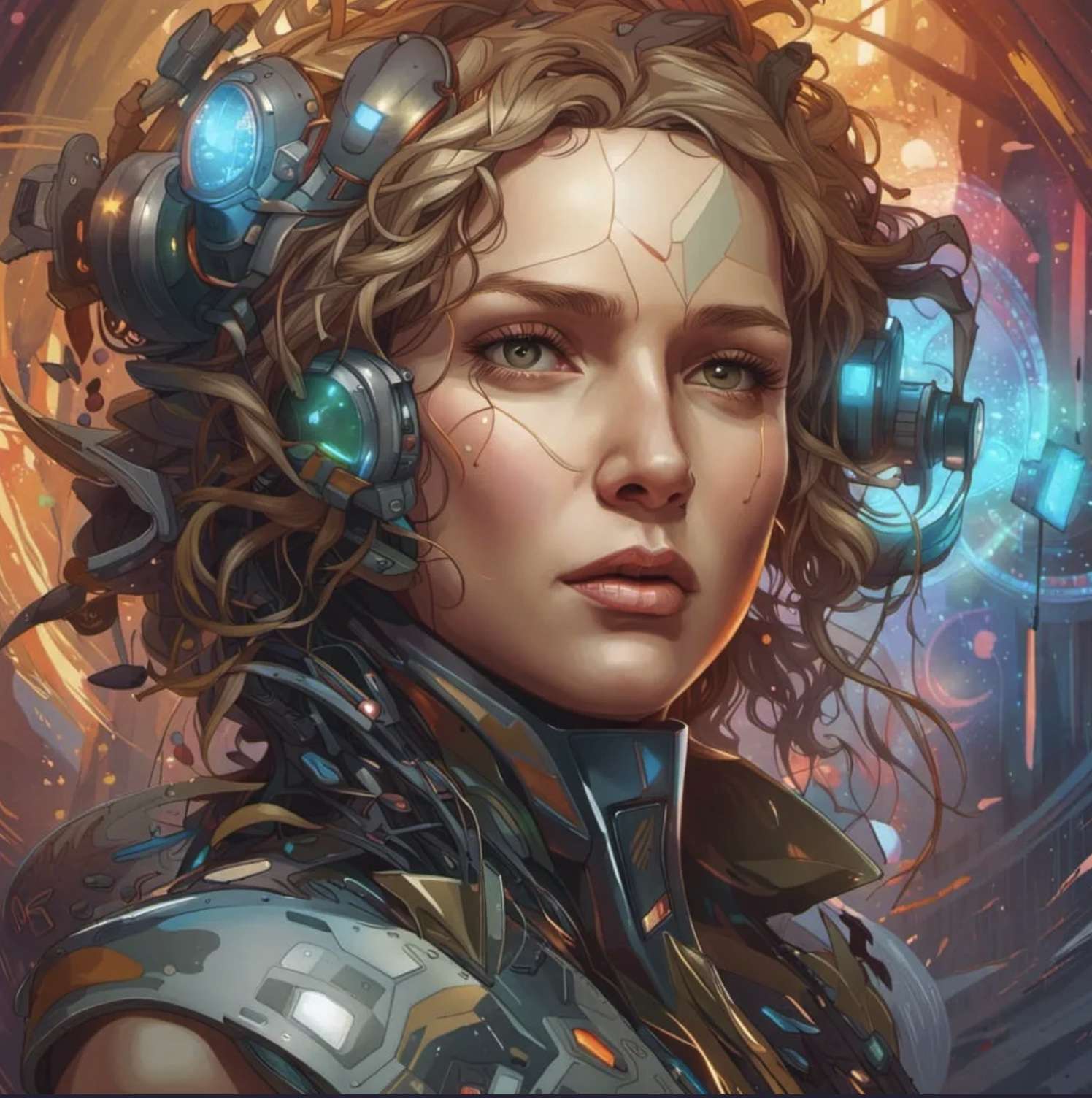How AI Is Transforming The Job Market Today
In the 21st century, change is the only predictable factor, in work, in life. From the internet revolution to the advent of smartphones, technology has dramatically reshaped our lives. Now, we are at the threshold of another shift, one that promises to redefine not only how we interact with the world but also how we work. This shift is being driven by Artificial Intelligence (AI), and it’s time we heed this wake-up call. Read how AI is already transforming the American job market.
AI is not some futuristic fantasy; it is here, and it’s rapidly integrating into our daily lives. It’s in the smartphones we use, the cars we drive, the media we consume, and most pertinently, the jobs we do. As AI technology continues to evolve and infiltrate every industry, it’s crucial for us to understand how it will change the nature of work in the USA and globally.
AI: The Job Transformer
AI’s ability to automate routine tasks has already begun displacing jobs in certain sectors. For instance, self-checkout kiosks are replacing cashiers, and manufacturing jobs are dwindling due to automated assembly lines. However, focusing solely on job displacement paints a half picture of AI’s potential impact on the job market.
The more profound way AI is changing jobs is by augmenting human capabilities, enabling workers to perform their roles more efficiently and effectively. AI can sift through vast amounts of data to extract meaningful insights, enabling better decision-making. It can automate repetitive tasks, freeing up employees to focus on more creative, complex, and fulfilling aspects of their jobs. Thus, AI is not just a job eliminator; it’s a tool that can unlock unprecedented levels of productivity and innovation. How ai is already transforming the American job market is best illustrated by taking a few existing jobs.
Example 1:
How AI changes the job of a lawyer.
AI is transforming the job of a lawyer by automating repetitive tasks such as legal research, contract analysis, and document review, enabling lawyers to focus on higher-level strategic and creative work.
Natural language processing and machine learning algorithms can quickly analyze vast amounts of legal data, identify patterns, and provide insights for case strategy. AI-powered tools also enhance accuracy, efficiency, and cost-effectiveness in legal processes, ultimately augmenting the capabilities of legal professionals.
Example 2:
How AI changes the job of an accountant.
AI is reshaping the role of accountants by automating routine tasks like data entry, reconciliations, and financial analysis. Machine learning algorithms can quickly process large volumes of financial data, identify patterns, and detect anomalies, improving accuracy and efficiency.
Accountants can leverage AI-powered tools for data-driven insights, strategic financial planning, and risk management. This shift allows accountants to focus on higher-value activities such as advising clients and providing strategic financial guidance.
But also creative jobs are impacted.
Take a Product Designer.
AI will augment product designers’ work by automating routine tasks, offering sophisticated design options, and enabling rapid prototyping. The role will shift towards strategic thinking, understanding user needs, and crafting innovative solutions, while AI manages data-driven design generation, rapid iteration, and user testing.

The Call to Upskill
However, to leverage AI’s potential, we must upskill. According to a study by McKinsey, by 2030, as many as 375 million workers globally may need to switch occupational categories and learn new skills. That’s about 14% of the global workforce. This shift requires a massive effort from individuals, businesses, and governments alike.
For individuals, it’s time to embrace lifelong learning. We need to develop skills that are complementary to AI, such as critical thinking, creativity, and emotional intelligence. These “soft skills” are the ones that machines have a hard time replicating.
For businesses, this means investing in employee training and development programs. They need to create a culture of learning where employees are encouraged and given the resources to acquire new skills. They also need to rethink their hiring strategies to prioritize these “AI-proof” skills.
For governments, it’s about creating policies that support workforce training and education. This could mean incentivizing businesses to invest in upskilling their employees, funding adult education programs, and revamping the education system to better prepare students for the AI-driven job market.
The Silver Lining

It’s easy to view this impending transformation with trepidation. However, it’s important to remember that every technological revolution in history has ultimately led to more job creation than destruction. The Industrial Revolution, for instance, while disruptive in the short term, led to an explosion of new jobs and industries in the long run.
AI has the potential to do the same. By automating routine tasks, AI can free up humans to focus on what we do best: innovate, create, empathize, and lead. It can open up new avenues for work that we can’t even imagine right now. We’ve already seen glimpses of this future with the emergence of entirely new job categories, such as data scientists, data analysts, AI ethicists, and machine learning engineers.
Businesses have started to embrace AI
In the past 5 years the number of companies that adopted AI in at least one business area has more than doubled. Early indications are that they are doing better than their competitors. The areas they apply AI vary from service operations optimization, to customer service analysis, lead generation, the introduction of new AI based products and risk analysis.
Redefining Work
AI also has the potential to redefine what we consider “work”. It can help create a more flexible and inclusive job market. For instance, AI-powered remote working tools can make it easier for individuals to work from anywhere, opening up opportunities for those who may be geographically isolated.
Moreover, AI can help create a more level playing field by reducing bias in hiring. AI-enabled hiring tools can analyze a candidate’s skills and fit for a job in a more objective manner, potentially reducing discrimination and increasing diversity in the workplace.
How AI Is already transforming the American job market? In our Findmino Career Database we already included jobs that are new as part of the AI developments. Click here to take a look. It also includes some useful reads and relevant college majors you may consider.

A Call to Action
Ignoring the AI revolution is not an option; it’s happening whether we’re ready or not. However, we do have a choice in how we respond to it. We can view it as a threat, or we can see it as an opportunity for growth and transformation.
We need to start having serious conversations about how to prepare for this shift. Businesses need to start planning how they will integrate AI into their operations and how they will support their employees through this transition. Individuals need to start thinking about how they can future-proof their skills. And policymakers need to start developing strategies to support this evolution in the job market.
The Future is Now
AI is already transforming the American job market. The AI revolution is not in the distant future; it’s here, and it’s changing the way we work. But rather than fear this change, let’s embrace it. Let’s see it as an opportunity to redefine work in a way that values creativity, diversity, and human ingenuity. Let’s use it as a tool to create a more productive, innovative, and inclusive job market.
In the grand narrative of human history, we are at a pivotal moment. As we stand at the brink of this new era, let’s ensure we’re not merely passive observers. Let’s actively shape this future, guided by our values and our vision for a better world. After all, AI is a tool, and like any tool, its impact will be determined by how we use it.
So here’s your wake-up call. The future of work is upon us, and it’s time to meet it head-on. The journey might be challenging, but it’s also filled with immense possibilities. Let’s seize this opportunity to create a future where technology serves humanity, where AI augments our abilities and frees us to do what we do best – to be human.

An AI-generated image of ‘the future of work’.
AI should not be seen as a threat but as a huge opportunity for advancement because it has the potential to revolutionize numerous industries, improve efficiency, enhance decision-making, accelerate scientific discoveries, and address complex global challenges. Think of our biggest challenges today, like global warming, mass migration and an unpredictable war in Ukraine. Understanding what’s at stake, what root causes are, what potential paths for solution look like can all be quicker analyzed than ever before.
Responsible development and regulation can ensure AI benefits humanity while minimizing risks.
In the end, it’s not about machines versus humans. It’s about machines and humans working together, shaping a future that reflects the best of both.
More reads
Check The Future of Jobs Report 2023 by the World Economic Forum.
Read what the European Parliament’s view is on AI and the impact to today’s world.

Career Cube.io
“Everyone deserves success. How this translates is personal: wealth, impact, independence.
Career Cube aims to unlock your personal talents to get you there. We’ve seen and done it. And offer our learnings to you, backed up by extensive research.”
Quick Links
Classes
About
Quiz
Contact